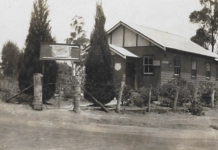
There are two terms used with increasing frequency to describe the church – ‘simple’ and ‘complex’. Some churches are simple and some are more complex. These terms are statements of fact. They are not putdowns or affirmations, just fact.
Both words can be used to pull down people or ideas or, equally, to build them up. Let us think positively towards both simple and complex churches. Sometimes simple is good and sometimes complex is good.
‘Humanity has the ability to take something simple and make it complex.’
We see the statement above expressed in many aspects of life. In our education system, we need to understand simple principles before we tackle the complex, e.g. science, English, mathematics. As we grow older, we comment on how our relationships become more complex and remember when they seemed simpler.
Most of us are part of the established church where our structure, leadership, worship and expression of church life could be classified as ‘complex’. There is a move around the world towards expressing church in what is termed ‘simple church’. If we look at the rapid growth of the church in Asia, almost all of this growth is through simple church.
Simple churches have a smaller number of people, often meeting in homes or cafes or rooms or under trees. These churches multiply rapidly as they are easier to replicate. Leading these churches is relatively simple, requiring less training, hence there are more leaders for these churches. They have few programs, do not own buildings, nor do they usually pay staff. There is a high degree of relationship and accountability, made easier by the smaller numbers, but also the priority that these are given.
Simple churches place a high importance on the word of God and living out the mandates of scripture. Obedience to the commands of Christ and the promptings of the Holy Spirit are expected. Worship is important; however, the worship is more varied than in established or ’complex’ churches. The worship may or may not involve music and singing.
Simple churches have three principles. These principles are found in the Great Commandment (Matthew 22:36-40) and the Great Commission (Matthew 28:18-20).
- Loving God
- Loving others
- Making disciples
At the core of these principles is the centrality of Jesus Christ. These principles should be at the heart of every church, whether simple or complex. The difference between simple and complex churches is that complex churches add programs and facilities and staff and finances to accomplish these principles and they in turn create the need for additional programs and staffing to support the principles. Simple churches find simple ways to undertake the three principles.
Jesus is challenging some in our churches to follow a simple path, to establish a simple expression of faith, to find simple ways to make disciples, to begin simple churches. Let us together encourage each other and build each other up.




































